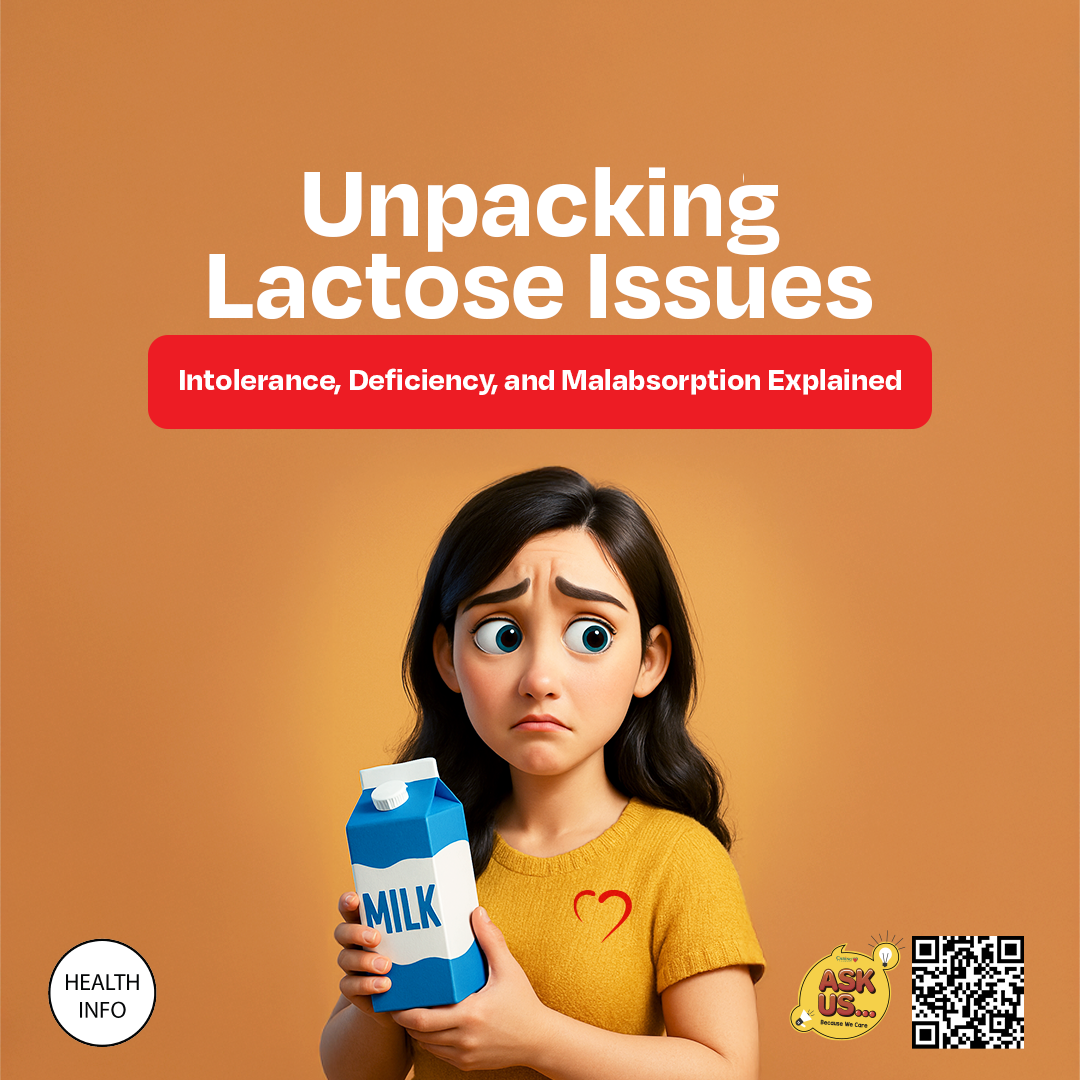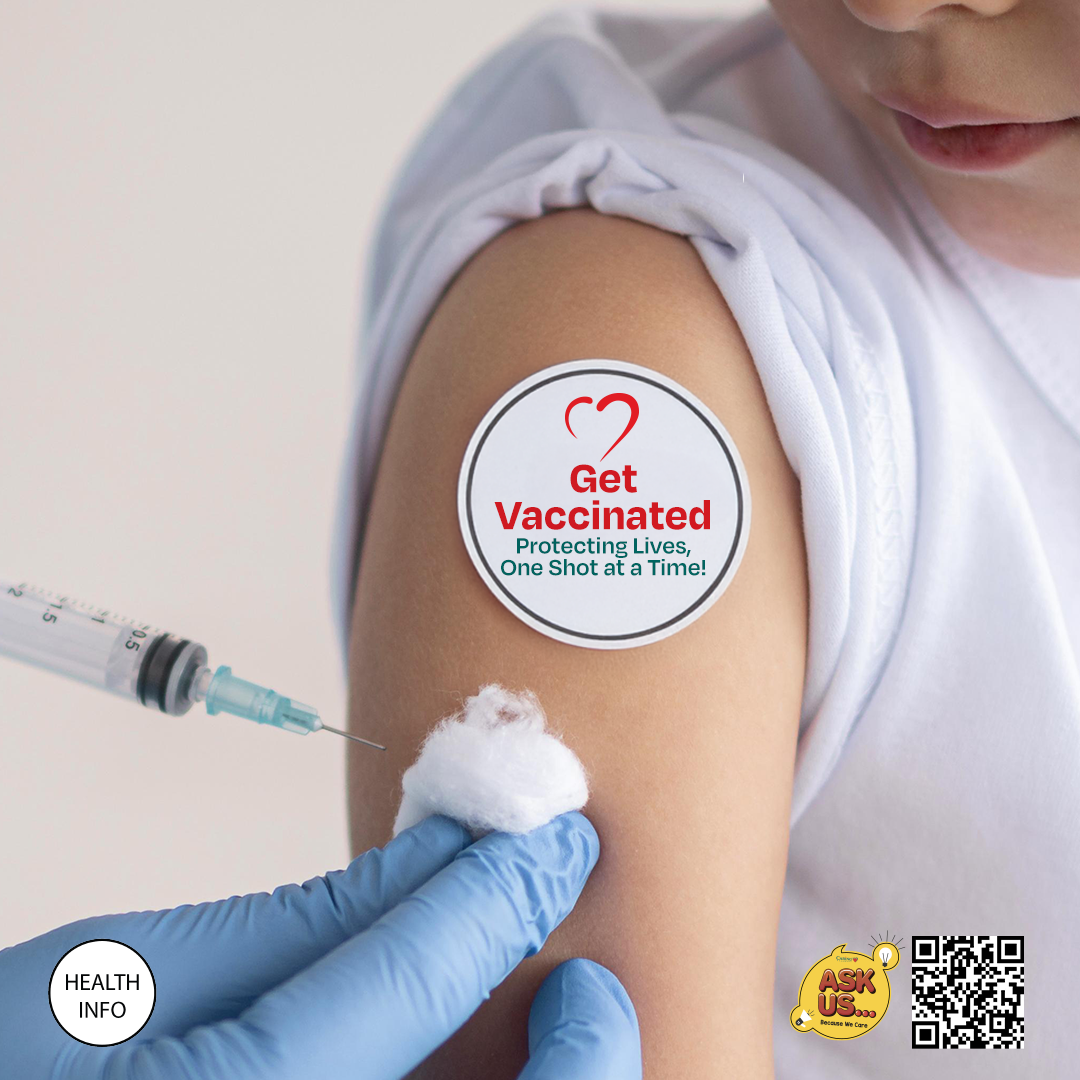- Home
- Health Center
- Health Info
- Milk Thistle vs Dandelion: Are They The Same?
Milk Thistle vs Dandelion: Are They The Same?
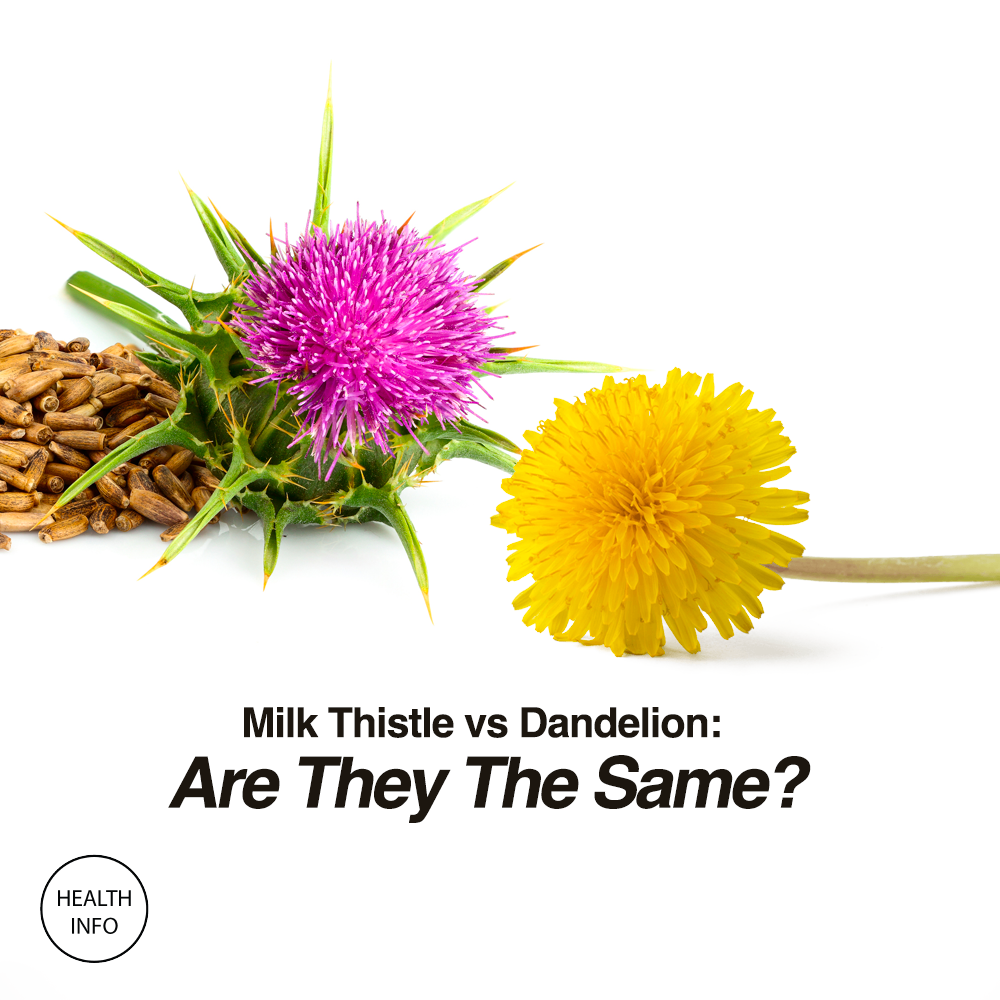


Milk thistle, the jack-of-all-trades liver supplement, has traditionally been used to promote liver health through the antioxidant and anti-inflammatory benefit from its active ingredient, Silimarin. It’s thought to be one of the most well-studied supplements in managing liver diseases such as hepatitis and fatty liver by neutralizing free radicals, preventing liver scarring and detoxifying the liver. Some studies show that Silymarin may improve blood sugar control and mitigate diabetes complications, though the evidence for this isn’t solid. Silymarin may also improve outcomes of neurodegenerative disorders, supports bone health and the immune system.[1,2]
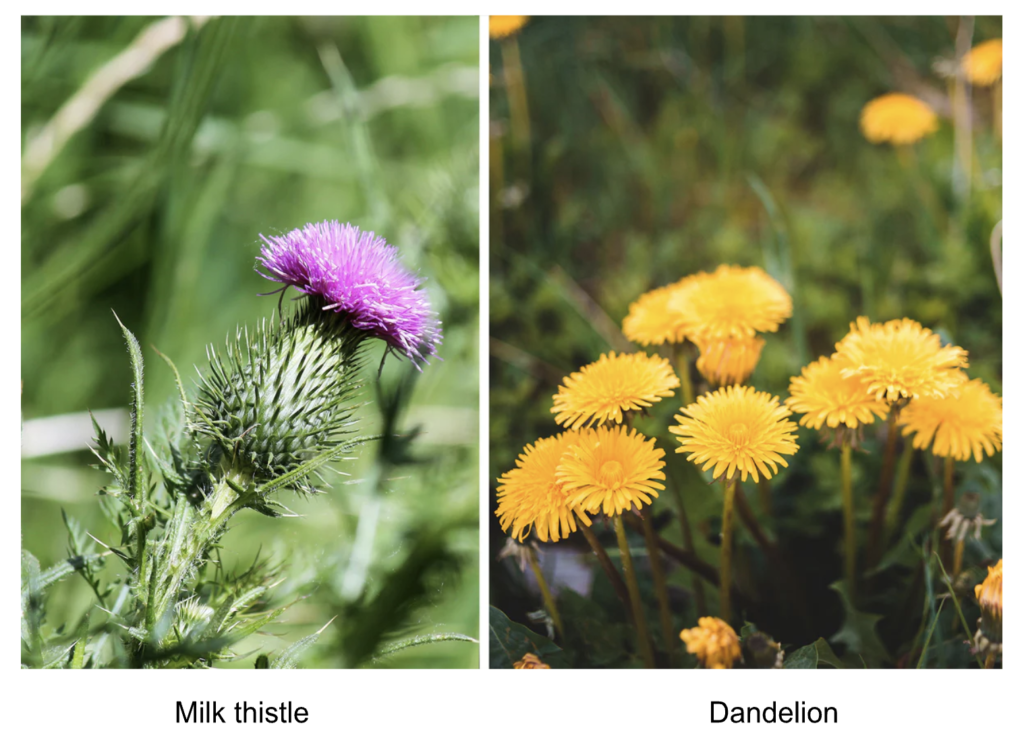 Now, let’s divert our attention over to dandelion root, another liver tonic with broad health benefits. Limited research has shown that the antioxidant and anti-inflammatory properties of dandelion may protect our cells from oxidative stress caused by chronic diseases such as hypertension, high cholesterol, diabetes and heart diseases. A benefit worth highlighting is that dandelion supplementation has been linked to reduced liver injury and improved liver and gallbladder function. It has also been shown to promote digestion by encouraging gut motility and is a rich source of prebiotics.[3]
Now, let’s divert our attention over to dandelion root, another liver tonic with broad health benefits. Limited research has shown that the antioxidant and anti-inflammatory properties of dandelion may protect our cells from oxidative stress caused by chronic diseases such as hypertension, high cholesterol, diabetes and heart diseases. A benefit worth highlighting is that dandelion supplementation has been linked to reduced liver injury and improved liver and gallbladder function. It has also been shown to promote digestion by encouraging gut motility and is a rich source of prebiotics.[3]
Now, my question to you is, why set your heart on just milk thistle and dandelion, when you can feast your eyes on a wider range of solutions?
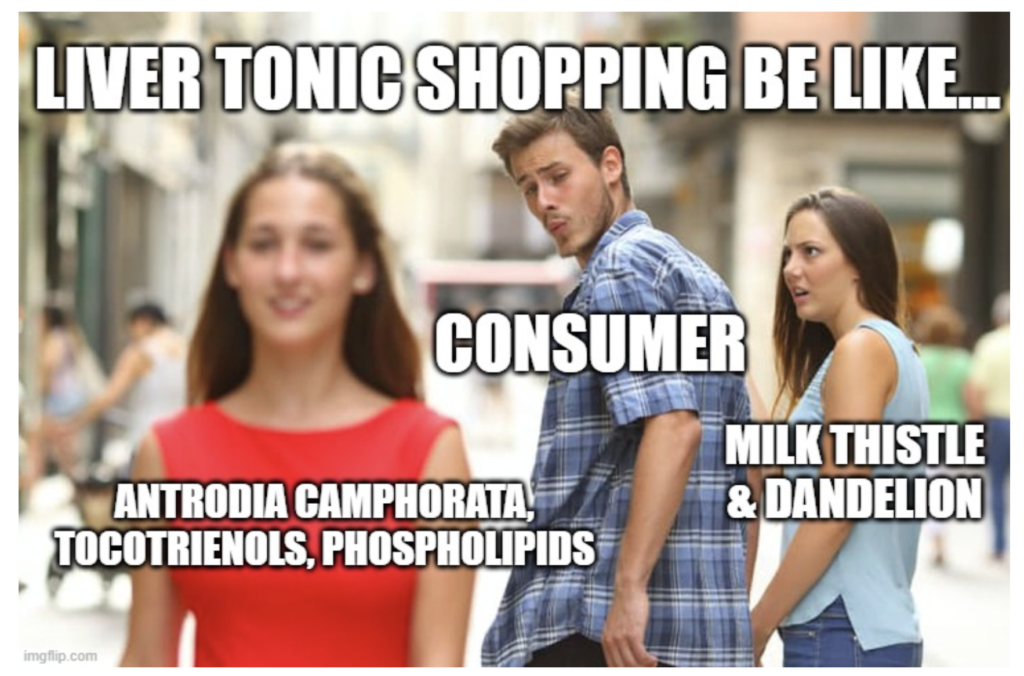
INTRODUCING….
ANTRODIA CAMPHORATA
A promising liver-protecting supplement with great historical presence in centuries of traditional Chinese medicine. The terpenoids and other constituents found in the mushroom are being studied extensively for its medicinal value, namely for cancer diabetes, neuronal protection but most of all, its potent antioxidant and anti-inflammatory activity in improving liver function.[4]
Notable benefits found in animal studies:
- Reduce triglyceride (cholesterol) levels
- Protect against liver inflammation and injury
- Protect against alcohol-induced liver toxicity
PHOSPHATIDYLCHOLINE
Known as an essential phospholipid, phosphatidylcholine is integral in the structure and function of our cell membrane as shown below.
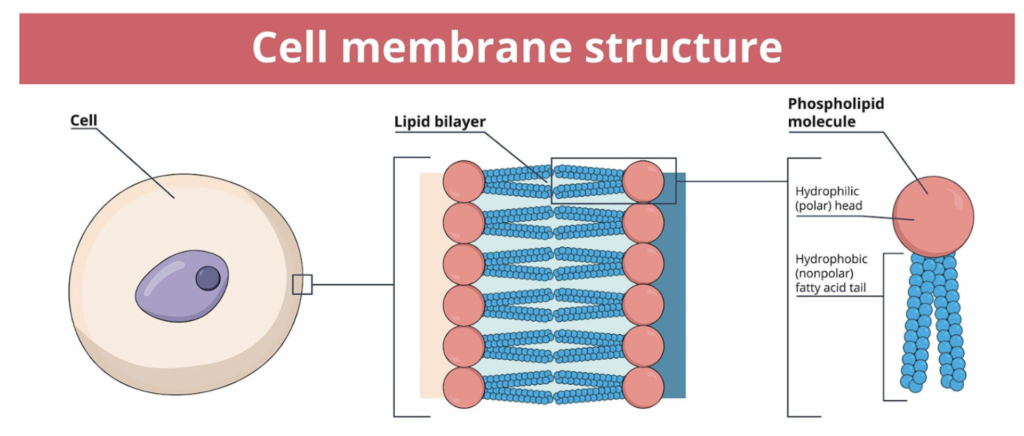
As they make up the protective wall of each cell of our body, phosphatidylcholine supplementation has found to[5-7]:
- Improve the detoxifying effects of the liver
- Assist dissolve gallstones
- Reduce buildup of fat in the liver
- Stimulate liver regeneration
TOCOTRIENOLS
Being a group of potent antioxidants in the vitamin E family, tocotrienols offer a myriad of health benefits in heart, brain and skin health. Above all, tocotrienols are linked in improving outcomes of non-alcoholic fatty liver disease (NAFDL) and treating end-stage liver disease, mainly through free radical scavenging and anti-inflammatory activity in the liver. THrough similar mechanisms,tocotrienols also strengthen arteries, improves cognition and reduces the risk of cancer, cardiovascular diseases and brain-related diseases.[8,9] Talk about a wonder nutrient!
In managing liver disease, there are many ways to skin a cat. Supplementation is definitely key but one should employ a couple more strategies to achieve optimal health. To understand further, start by taking it up with a CARiNG Pharmacist!
References:
- Is Milk Thistle Your Next Go-To Supplement? Cleveland Clinic. (Web accessed December 2023). Web link: https://health.clevelandclinic.org/milk-thistle-benefits
- What are the benefits of milk thistle? Medical News Today. (Web accessed December 2023). Web link: https://www.medicalnewstoday.com/articles/320362
- Dandelion Benefits: Nutrition, Antioxidants, and Inflammation. Healthline. (Web accessed December 2023). Web link: https://www.healthline.com/nutrition/dandelion-benefits
- Terpenoids from the medicinal mushroom Antrodia camphorata: chemistry and medicinal potential. Y Kuang et. al (2021). Natural Product Reports
- What Is Phosphatidylcholine and How Is It Used? Healthline. (Web accessed December 2023). Web link: https://www.healthline.com/health/food-nutrition/phosphatidylcholine
- Essential phospholipids in fatty liver diseases. Evidence for Self Medication. (Web accessed December 2023). Web link: https://www.efsm.online/int_en/article-overview/101/2021/essential-phospholipids-in-fatty-liver-diseases
- Essential phospholipids. Mechanism of action in liver disease explained. Global Liver Forum. (Web accessed December 2023). Web link: https://www.globalliverforum.com/dam/jcr:6cc825ea-b9aa-4ee2-be4a-5d93fc329401/Lecture%20summary_Liver%20Forum_Prof_Okopien.pdf
- The Next Generation Vitamin E: How Tocotrienols Prevent and Repair Heart, Brain and Liver Disease. Clinical Education. (Web accessed December 2023). Web link: https://www.clinicaleducation.org/resources/reviews/the-next-generation-vitamin-e-how-tocotrienols-prevent-and-repair-heart-brain-and-liver-disease/
- What you need to know about tocotrienols. Medical News Today. (Web accessed December 2023). Web link: https://www.medicalnewstoday.com/articles/319689
Latest Health Info
Unpacking Lactose Issues: Intolerance, Deficiency, and Malabsorption Explained
Ever wonder why some people, or even yourself, are suffering from lactose intolerance? Lactose, the primary sugar in milk and ...
Detect to Protect: Why Cancer Screening Matters
Cancer is a complex group of diseases characterised by the uncontrolled growth and spread of abnormal cells in the body. ...
Get Vaccinated: Protecting Lives, One Shot at a Time
Vaccines are among the most powerful tools in medicine, saving millions of lives by preventing serious diseases. From children to ...

